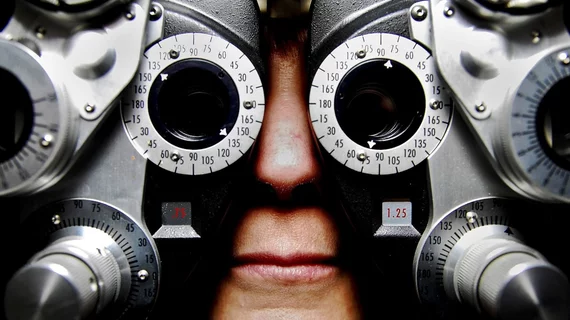AI takes aim at 158-year-old eye exam
It may be time to take a long last look at the vision exam that relies on a cardboard sheet of huge letters at the top and tiny ones at the bottom.
That seemingly immortal element in every eye doctor’s office is known as the Snellen chart. It’s been around since 1862. But Snellen’s ingenuity is now being challenged, at least as a standalone, by an AI-based innovation that would take vision testing online.
The up-and-comer was recently developed at Stanford and is described in a study posted June 3 by Proceedings of the AAAI Conference on Artificial Intelligence.
In coverage of the research running in Science, reporter Marina Wang explains that the Stanford team ran its model through 1,000 computer simulations mimicking real patients. They found it reduced error by 74% compared with the Snellen test.
In the coverage, one ophthalmologist points out that online eye tests aren’t really new. Still, he allows, the use of AI for boosting accuracy is “clever.”
Another eye MD seems more impressed.
“I think that it would very quickly get adopted by over 80% of ophthalmology practices,” she says. “We really are desperate to have some good way of doing this.”
In any case, the plan is not to replace Snellen’s chart but to augment it.
Get the rest from Science:

